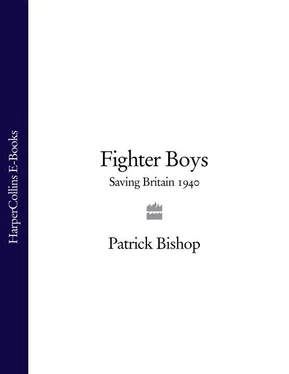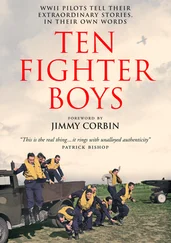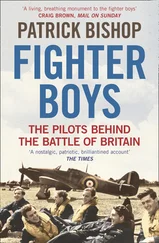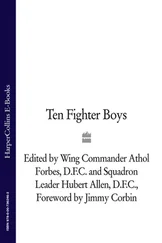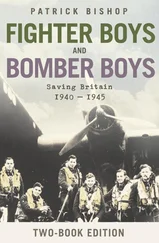The streets around the aerodrome were full of people. Newspapers had warned that morning that the air fighting of the previous few days had been only a prelude to the real battle. Invasion fears were excited by the discovery of parachutes scattered across the Midlands and Scotland – but no parachutists. The sight of the bombers sent people running to the earth-and-corrugated-iron shelters they had dug in their back gardens. Others were too absorbed in the drama to take cover. Mr H. J. Edgerton of Couldson watched the Messerschmitts flash past, seemingly only a few feet over the roof of his mock-Tudor home, as ‘about 20 Hurricanes and Spitfires streaked after them. Our fellows attacked them from below and roared up under them in terrific power climbs.’ It was strangely exciting. The engines were ‘screaming deafeningly’. The aeroplanes flew perilously close to each other and ‘time after time I thought the RAF were going to ram the bombers but they swept past them’. 2
On leaving, the Luftwaffe raked its nails across Croydon’s homely, lower-middle-class face. Bombs tumbled into the streets, ripping up tarmac, blowing out windows and tearing off roofs. A woman emerged from her shelter to find nappies drying on the line shredded by machine-gun bullets. A doomed bomber piled into a row of semis, peeling away the walls, putting on display the modest lives being lived inside.
The Hurricanes of 32 Squadron and Spitfires of 610 Squadron had been unable to block the attack, though they shot down several of the raiders as they ran for home. Despite the deaths and the devastation there were few recriminations about the lack of warning or the level of protection the anti-aircraft defences and the air force had been able to provide. On the contrary, there was intense pride in the sight of the fighters charging in to attack. It seemed to Mr Edgerton that the British pilots had deliberately held their fire for several minutes, ‘because of the danger of bringing the bombers down on the thickly populated district’.
In fact no such restraints were imposed either by the controllers directing the defences or by the pilots themselves. The assumption of selflessness was revealing. Already, after only a few weeks of the air war over Britain, the pilots of Fighter Command were bathed in the light of nobility. The organization was just four years old. Before the spring of 1940 fighter pilots were known as a small, vaguely glamorous elite. Their role in the fighting in France had been peripheral, and, in the great drama of the Dunkirk evacuation, somewhat contentious. Now, with Britain facing possible extinction, they were at the centre of the national consciousness, turning day by day into the heroes of a salvation legend. When people spoke about them it was in an increasingly proprietorial way touched with familial affection. First they were ‘our boys’. Then, by midsummer, they were ‘fighter boys’. The name conveyed everything: their youth, their job, their dash – and the warm regard in which they were held. ‘Stuffy’ Dowding, the pilots’ austere commander, was the first to use it officially, writing in June a letter of congratulation to his ‘dear Fighter Boys’.
By the end of the summer everyone in Britain was in love with them. The air battles of 1940 were intimate affairs. Unlike any external war Britain had been engaged in in the previous thousand years, this one was fought in the sight of the inhabitants of the island, over the territory the pilots were giving their lives to defend. Combat took place above the monotonous roofs of London suburbs, the old market towns and villages of Kent, Sussex and East Anglia, the fields and orchards of the Home Counties. Those below had only to look up to see an unprecedented spectacle: huge masses of bombers and fighters skidding across the cerulean summer sky, scribbling white vapour trails on its placid surface and stitching the blue with the red and gold of cannon and tracer. It was thrilling, and from a distance beautiful and unreal. Then a Heinkel would falter, stagger out of formation, slide into a stricken dive; a Hurricane would spurt flame, roll on to its back and spin down in frantic spirals, and with a final flash and boom the violence reached earth in an ugly tangle of scorched metal and roasted bodies.
The pilots fighting the battles lived among those they were defending. At 6.40 p.m. that Thursday, just outside Sevenoaks, Michael Crossley caught up with one of the Me 110s that had raided Croydon and set it on fire, sending it crashing down near the pleasant village of Ightham. Two hours later he was accepting drinks from locals in the pub, a few miles from where workers were clearing the wreckage and retrieving the corpses of the dead.
The Battle of Britain had many of the characteristics of a siege. Everyone inside the enclave, active or passive, soldier or civilian, was a defender. The closeness this engendered could sometimes be almost unbearable. The girlfriend of Flying Officer Douglas Grice, the ‘Grubby’ of Crossley’s report, was a Waaf at Biggin Hill. The buzz that her man had ‘gone in’ reached her in a break between driving pilots out to their aircraft. Grice was badly burned but recovered. There were much worse stories. On a later occasion another Waaf, Edith Heap, who worked in the Debden control room, froze as a voice over the Tannoy reported ‘Blue Four’ was falling into the sea in flames. She knew, without waiting for confirmation, that the man she loved and was about to marry was dead.
Looking up at the wheeling Spitfires and Hurricanes, ordinary people imagined their own sons or brothers at the controls. Sometimes it was true. The mother of Tim Elkington, a young pilot with 1 Squadron, watched from the balcony of her flat on Hayling Island as he was shot down, baled out and drifted perilously over the sea before finally landing safely.
But you did not need ties of blood or romance to feel a particular bond with the Fighter Boys. The backgrounds of the few thousand pilots flying Hurricanes and Spitfires in the summer of 1940 reflected the social composition of the nation, a point that was emphasized by official and unofficial propagandists. ‘The most striking thing about the fighter pilots is their ordinariness,’ wrote a war artist who spent months among them. ‘Just you, I, us and co.; ordinary sons of ordinary parents from ordinary homes.’ 3Fighter Command was perhaps the most motley elite ever to exist in the British military. In 32 Squadron, Crossley had been at Eton. John Proctor had left school at fourteen to become an RAF apprentice. Many of those standing in the pub had been in the RAF reserve before the war, training in their spare time from their often mundane jobs. Oliver Houghton had been a fitter in a Coventry factory. William Higgins was a teacher in a Derbyshire village school.
Their interests and attitudes were as broad as their backgrounds. Fighter pilots might be philistines or intellectuals, bon vivants or ascetics, pious or godless, cynical or trusting. There were some whose dominant trait of recklessness or aggression or amiability made them stand out, but most were too ordinarily complex to be pigeonholed. Fighter squadrons were collections of individuals. The nature of the fighting made it so. Once combat began, a pilot was usually on his own, beyond the control of his commander and making fateful decisions alone.
There were, though, strong affinities and common characteristics that bound the bunch together. The most potent was a love of flying. Speaking about flying, and when occasionally they wrote about it, the pilots dropped their usual clipped understatement for the language of passion. It was an obsession and an addiction and aeroplanes were far more than simply machines. They had quasi-human qualities. They could be brutish and heavy or beautiful, fragile and sensitive. If it was love, it was nearly always love at first sight. The pilots’ reminiscences are full of lyrical memories of the first encounter, when the flying circus arrived in town or a mysterious figure floated out of the sky to land in the field next door.
Читать дальше
